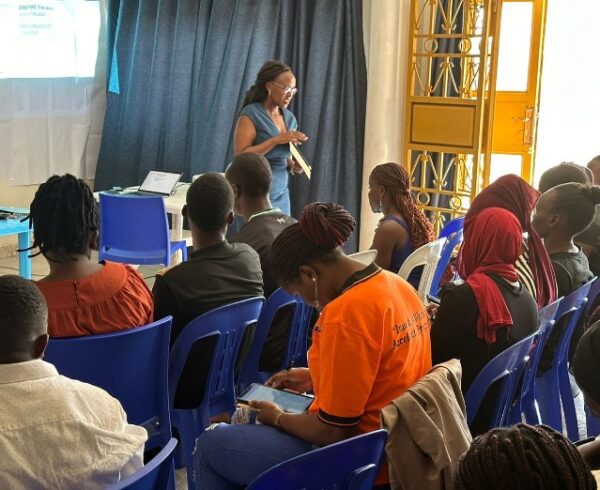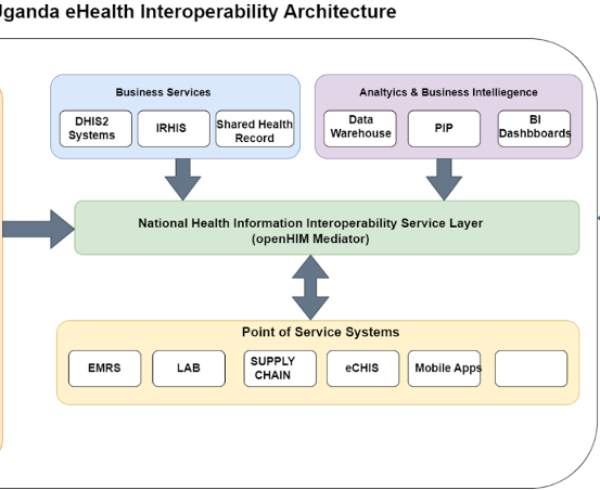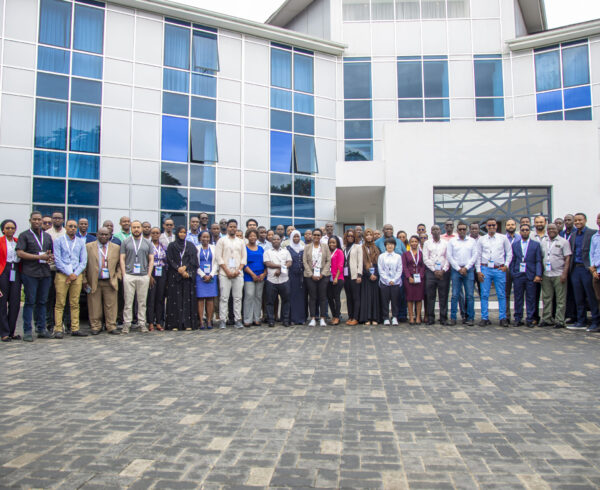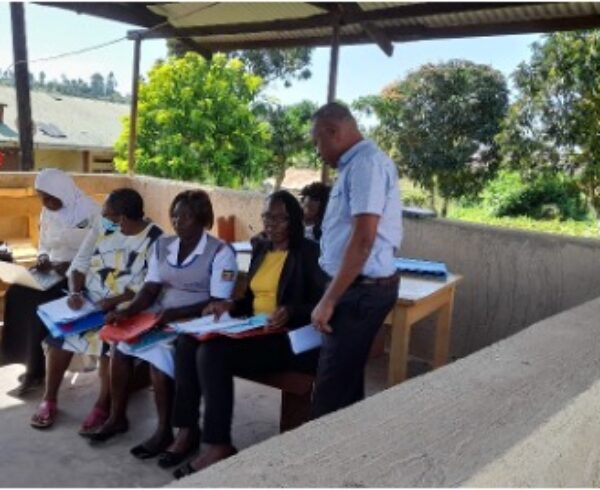Makerere School of Public Health Monitoring and Evaluation Technical Support (MakSPH-METS) Program Launches Case Based Surveillance (CBS) in Uganda

A cross section of the equipment that was donated by MakSPH-METS Program to Kabarole District
The skies cleared to pave way for the much anticipated inauguration of the HIV Case Based Surveillance Project that took place in Kabarole District on 2nd August 2016 at Kicwamba Health Centre (HC) III. The HC, located at the foot of magnificent hills, has for a long time depended on paper to document the information of its patients undergoing ART like many others throughout the country. However, with the launch of the CBS project, this is expected to change to a computerized system that will enable health workers acquire accurate and unduplicated information regarding the number of people that are infected by HIV within the District and track their movement and progress under treatment.
CBS is one of the program areas of METS and it has been piloted in two Districts in Uganda; Hoima and Kabarole. The choice of Districts was coined basing on various factors among them the state of the facilities and the prevalence rates in each District. Uganda is among the first countries to adapt CBS as has been done in Ethiopia, Kenya, South Africa and Tanzania.
MakSPH in partnership with the Ministry of Health donated equipment worth approximately Ugx 97.6 million to Kabarole District. This included 19 computer and 10 solar system panels. The solar panels will be installed in the Health Centers that are off the UMEME grid and therefore cannot access electricity. The beneficiary centers include Kabarole Hospital, Fort Portal Referral, Kasenda, Kicwamba, Kakinga, Kiddubuli, Iruhuura, Nyataboma, Nyabuuswa, Rwagiimba, Rwambiya, Kiiko, Kabende, Kasenda, Kisomoro, Kiyoombya, Kiibaate, Kabonyeenero.

Professor Anthony Mbonye and METS staff hands over the equipment to the District leadership

A section of the residents of surrounding areas of Kicwamba HC III
The event was graced by Professor Anthony Mbonye, who represented the Minister of Health, the Commissioner Disease Control Dr. Patrick Tusiime, Dr. Alex Opio, Richard Rwabuhinga the Kabarole LCV Chairman, the District CAO Mr. Dastan Balaba, the DHO Dr. Nathan Ruhinda, a Ministry of Health Delegation, various officers from Implementing Partner organizations like Baylor Uganda and several District leaders. The well attended inauguration was kick started with a band that marched and thrilled the crowds to the venue.

Professor Mbonye making his remarks during the inauguration; others L–R: Dr. Tusiime, Dr. Opio, Dr. Musinguzi and Mr. Balaba
Professor Mbonye noted that the efforts by CDC, MakSPH-METS and other Implementing Partners who are assisting Government in realizing its goals while enabling proper knowledge about the HIV/AIDS burden in the various sections of the country. He added that the Ministry of Health would soon launch an HIV Impact Survey that would give new estimates in this regard.
Hon. Richard Rwabuhinga applauded METS for succeeding in becoming a household name as this in itself was an achievement because people out there know that something good is being done. He further applauded the METS team for mentoring the necessary staff in the district especially in regard to data management. He pledged to put in place required security for the systems to ensure continued utilization.

The DHO (in suit) Dr. Nathan Ruhinda, introduces the Kicwamba HC III staff
Dr. Ruhinda expressed his commitment to ensure the Electronic Medical Records System is given all the necessary support seeing as the District was well organized and has the will to work with the partners on ground. He also appreciated the innovation that was linking the facilities as this would ease monitoring of patients.
METS Program Manager Ms. Evelyn Akello, who spoke on behalf of the Principal Investigator Professor William Bazeyo, noted that the CBS would empower the fight against HIV/AIDS as it would be an addition to other important sero-behavioral surveys, size estimation studies of risk groups and sentinel surveillance to form a more complete picture of the HIV epidemic going forward. Data from these would assist in planning and prioritization of HIV prevention and intervention activities. She further pledged technical support to clinics being linked through a networked biometric patient management system that uses finger print technology and the national identification cards.
The next phases will include finger print taking of the patients as well as continued training on use of the program. The success of this project will pave way for efforts of spreading these best practices to the rest of the districts.






